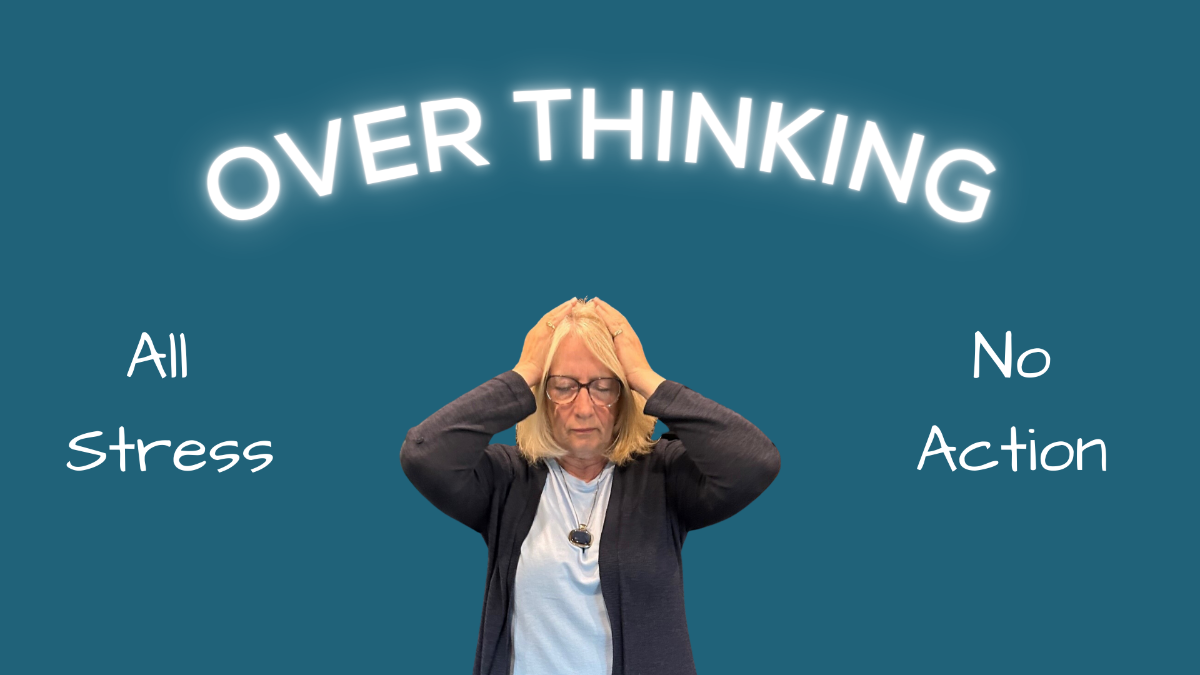
Can you stop overthinking? A participant in my workshop asked?
It was at the end of the session, I didn’t have time to give a proper response, but I nodded enthusiastically that it is doable. To stop the constant planning, reviewing the plan, questioning the plan revising the plan…over thinking, yes, it is possible, I said with a shadow of doubt!
Perhaps it was the universe giving me time to form a good answer to the question, rather than giving a superficial or weak response. On the drive home from the workshop, I reflected on the multiple ways I could have answered. Then I noticed my thought pattern! I was doing the exact behaviour in question…over thinking!
I wondered if I should research the literature for guidance. Yes…I will find statistics and research data that I can include! Then I thought, I should reach out to my mentors and colleagues to gain their perspectives. Good idea! Better still and to save time, I will see what ChatGPT comes up with first! Whoa…stop!
Even though those are good strategies, and I like to add a variety of perspectives to the Leaders Exchange Sandbox, I have my own methods and opinions when it comes to personal change and understanding ‘patterns of thought’. In that moment, I realized my pattern to seek others’ opinions first was about self-confidence, confidence to speak about my own 10+ years of study and reflection on inner communication and interpersonal communication. I believe that it is the same pattern of inner doubt for the student who asked the question.
Over thinking is a pattern that is common for those of us who are seekers of knowledge and yet are never quite satisfied that we have learned enough or the right stuff. Ultimately, it is a shortfall in confidence. As with any personality trait, there are upsides and downsides to every trait. The determination to study and question an issue fully, and seek multiple perspectives, leads to a well-researched paper. But it can also lead to paralysis and confusion. Our educational system and parents encourage us to seek knowledge from sources outside of ourselves. It is rarely encouraged to seek wisdom from our inner selves, the wisdom that is available to us when we quiet the pre-frontal cortex and listen instead to our intuition.
What follows is the answer that came to me when I paused to listen:
- Notice – Catch yourself in the act of over thinking. Notice when your mind goes on a rollercoaster from ‘I know’ to ‘I don’t know’ to ‘maybe I know’ then to fog and ultimately, inaction.
- Stop – Quiet your mind, for as long as you can, holding a space of non-thinking. At least a few seconds, longer if possible.
- Thank – Your inner wisdom. Remind yourself that you are the right person to put forth a decision, an opinion, a conclusion. You haven’t selected ‘the right’ answer just yet, but you will. This step is about feeding your confidence and, when the time is right, you will land on the best path.
- Pause – Be quiet and still in your mind again.
- Invite – Your council of advisors (real or imagined, alive or passed on, famous or known only to you) to offer their thoughts on the matter in front of you.
- Pause – Be quiet again and believe the best path will become obvious.
- Notice – The next thought that comes to you is the best answer for the best outcome.
- Act – Take the first step or complete the entire process.
The key is to start.
I followed these steps as I prepared to write this article. At first, I was stuck, unclear, questioning my ideas and my authority. I felt fear and frustration rising in my throat. I had given myself a deadline and I was reaching the end of the grace period. I stopped overthinking and flowed through the steps and started writing.
You can stop over thinking too! In fact, you must. Your health, well-being, ability to accomplish, succeed, and reach your goals depends upon your determination to tap into your wisdom and move into action.
You will know your decision is true for you because you will feel good!
